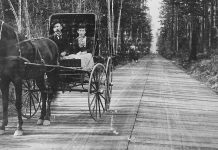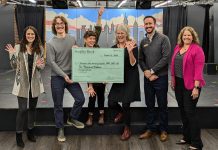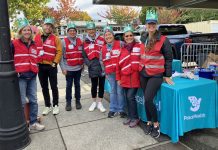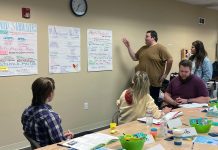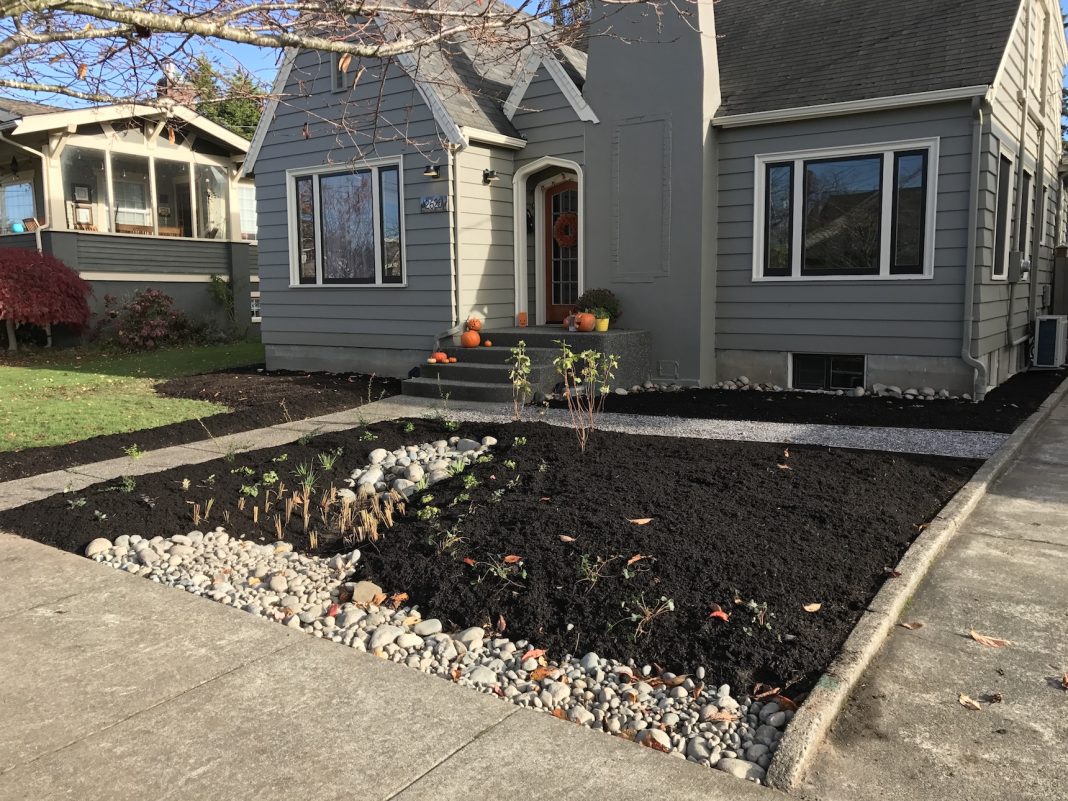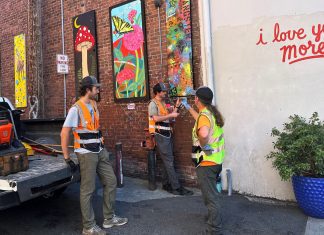If you live in Whatcom County there must be some small part of you that likes wearing perpetually wet shoes and the challenge of walking to your car after work without an umbrella. Not unlike our coffee, beer and sword ferns, the Pacific Northwest rain is plentiful. Much of it, however, immediately turns into stormwater runoff, which carries pollutants into our local waterways and drinking water, creating harmful living environments for ecosystems and the community alike. Luckily, there are many ways rainwater can be managed and used to benefit not only the environment but individual residents and commercial businesses.
Rainwater Harvesting

Northwest Rain Solutions LLC is a local company that specializes in rainwater catchment and harvesting. They make it possible to put rainwater to use within our homes or businesses by providing storage, filtration and use solutions, all while reducing stormwater runoff. President of the company, CJ Huxford, explained, “We do everything from rainwater catchment for irrigation all the way to drinking water. We do commercial applications and water and storage tank installations and maintenance, as well as design and install full filtration systems.”
CJ described the benefits of rainwater management for residents and businesses trying to obtain building permits or meet regulations. “Last year we went down to Elysian Brewery in Seattle and we built a corrugated steel tank that’s only purpose was to manage the rainwater,” he said. “When the rainwater comes off of their 40,000 square foot roof it goes into these tanks. It has a little orifice that lets water out very slowly so that before the next rainstorm comes it has slowly gone out into the system instead of all at once and causing problems.” This strategy also cuts down on stormwater fees that commercial businesses have to pay, which has the potential to be a major cost savings.
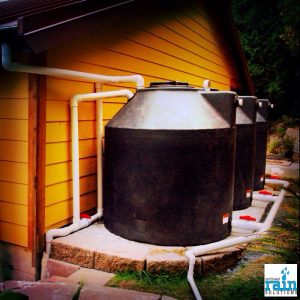
For issues like the current well moratorium that has restricted building in rural areas due to low producing aquifers, catchment systems can provide water access and thus allow potential builders to obtain building permits. “We have helped a couple folks just this past year who weren’t able to get water. We designed a rainwater system that was able to meet their whole house use,” CJ explained.
Northwest Rain Solutions LLC is also very active within the Homeowner Incentive Program (HIP), a program that reimburses homeowners who do mitigation projects on their lot, which helps to reduce the runoff from impervious surfaces. This program especially targets homes within the Lake Whatcom watershed since the lake is the primary reservoir for most residents in the area. Its goal is to convert 87 percent of the developed watershed back into a natural, hydrologically functioning, undeveloped area within the next 50 years.
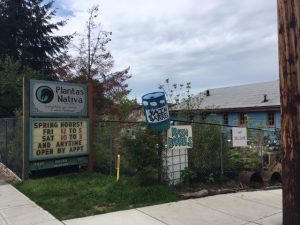
“Given that you can’t have everybody move out of the watershed, that’s where low impact development and managing rainwater onsite comes into play,” CJ explained. Over 400 projects have been implemented due to this program. It’s especially nice because there are a lot of solutions to help solve these problems by using different strategies. For instance, consider your water use. The water we use from Lake Whatcom is expensive to treat and, considering what we use it for, often quite unnecessary for it to meet drinking water standards. “About 25-35 percent of the water you use indoors gets flushed down the toilet or is used in your cold water laundry,” CJ said. “So the philosophy is that if you have more people in the watershed with toilet flushing systems, in which case the water is not running off, being retreated and using energy, there is a lot of potential cost savings.”
Sustainable Landscaping
Another solution that goes hand-in-hand with rainwater is sustainable landscaping. Implementing rain gardens by planting native plants is a great way to reduce stormwater runoff and keep waterways healthy. Plantas Nativa, owned by Bay Renaud and located in Bellingham’s one-of-a-kind Alley District, is an excellent resource for such projects.
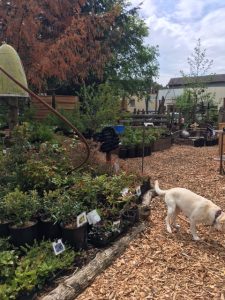
The local business started in 1994 for commercial native plant seed collection and has since morphed to include wetland mitigation, landscaping and the wholesale and retail of native plants and rain barrels. When asked how rainwater collection and native plants pair together, Bay responded, “It’s just kind of the same. You are preaching to the same choir. People who want native plants understand the importance of conserving water and they want their plants to do the same.”
While Northwest Rain Solutions LLC handles larger rainwater catchment installations, Plantas Nativa addresses the do-it-yourselfers who use rainwater on a smaller scale. Plantas Nativa sells three different sizes- 300 gallons, 275 gallon and your typical blue barrels which are 55 gallons. “Most people use them for watering plants,” Bay explained. “Occasionally people use them for storage water in case of emergencies. Some people use them for aquaculture where they grow fish in them and use the water as fertilizer for water their plants.” He also mentioned how much of an economic incentive there is to use rainwater now that the city has implemented meters. By cutting back on city water use, residents not only have the potential to reduce stormwater runoff, but to also save money.
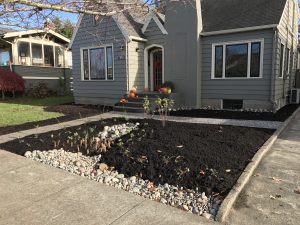
Between rainwater catchment savings and the Homeowner Incentive Program, which is willing to reimburse residents up to $1.30 per square foot of protected area, there are many reasons why low impact development solutions should be put to use. Both CJ and Bay make it easy and are here to help get you started. You might as well take advantage of our PNW rain. Keep your plants happy, up your savings and keep local waterways clean!
You can find out more about these businesses and the Homeowner Incentive Program by visiting their websites.
Homeowner Incentive Program- www.lakewhatcomhip.org
Northwest Rain Solutions LLC- www.nwrainsolutions.com
Plantas Nativa- www.plantasnativa.com








